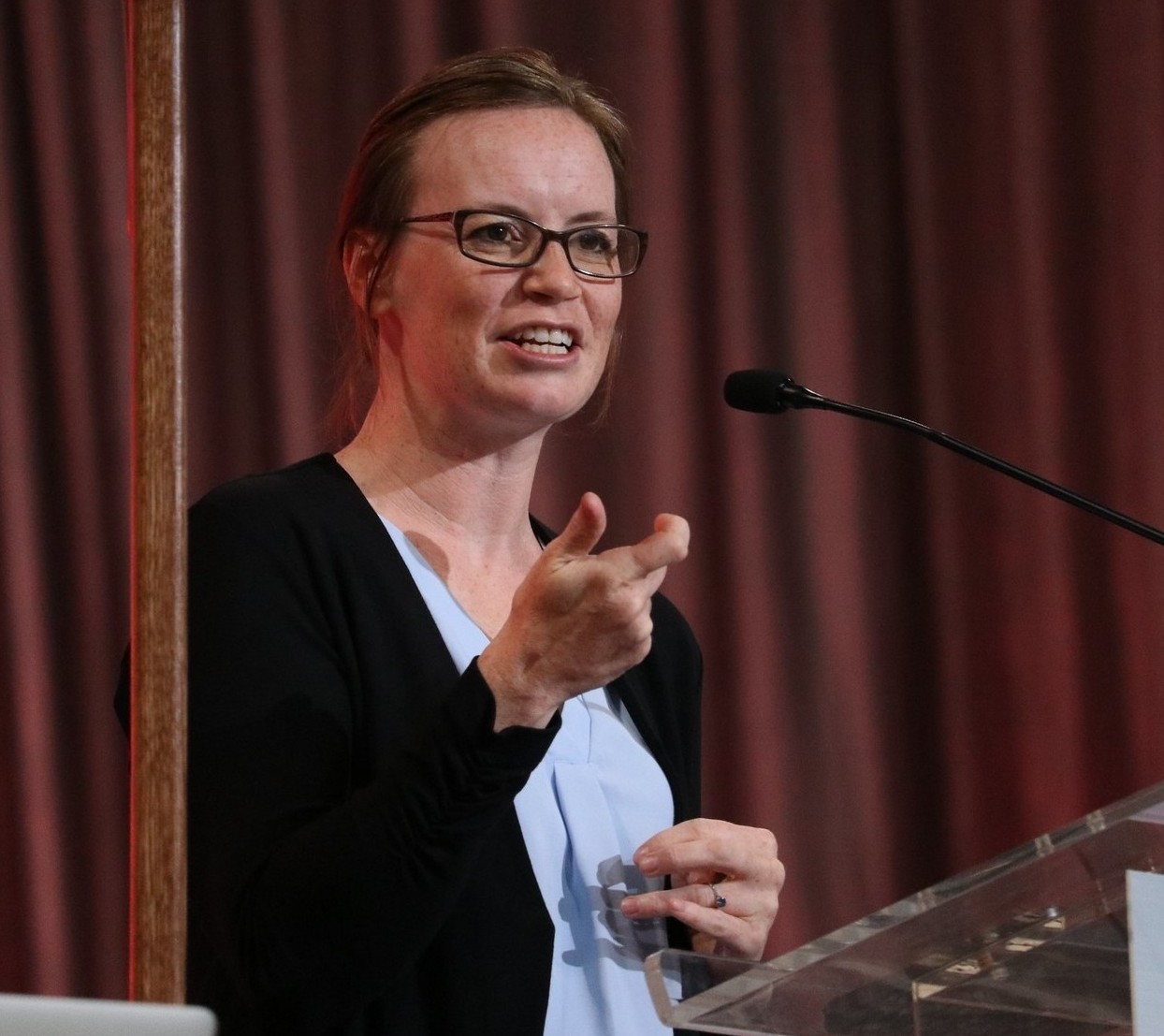Order of Elders Share Experiences and Encouragement
About 100 elders gathered at Barrington United Methodist Church on March 25 for their annual order meeting.
Wesleyan vile-tality (n.): A willingness to look beyond today’s acceptable practices, standards, and norms, and bend the rules in order to ensure that more and more persons can be included within the kin-dom; and that all persons, no matter who they are, how they identify, whom they love, or how they live can know and experience the love of God, can know their own self-worth, and can then grow to love themselves and others.

Rev. Dr. Ashley Boggan D.
Dr. Ashley Boggan D., general secretary of the United Methodist General Commission on Archives and History, coined this term and encouraged North Central Jurisdictional Conference delegates and guests at their July 11 meeting to embrace it as a core aspect of Wesleyan identity.
In 1739, a friend asked John Wesley to take up that friend's ministry of preaching outdoors. Preaching outside of a church was simply not done by good Anglicans. However, Wesley gave it some thought, and ultimately, he wrote in his journal, "I submitted to 'be more vile', and proclaimed in the highways the glad tidings of salvation."
“Wesley was knowingly and directly violating church law and overlooking the human-made boundaries of the institutional church in order to take God’s love to those who needed it most,” Boggan said. “Spreading the love of God required Wesley to do something that he considered reprehensible, but he did it.”
Would we be willing to break the standards of society or disobey church law today to reach those outside the walls of the church? Boggan asked.
She shared a little-known story of early Methodism. The Holy Club, a group of Oxford students who met regularly with Charles and John Wesley for Bible study and prayer, began a prison ministry. They visited and prayed with prisoners and held authorities accountable when they saw injustices in the prison.
Prisoner Thomas Blair was on death row for having a sexual relationship with another man. John Wesley and his friend John Clayton believed that Blair was being victimized by other inmates, and they sought to prove his innocence at his trial. When Blair was found guilty in court but sentenced only to pay a large fine, John Wesley raised the funds.
“In order to ensure that Blair felt worthy of God’s love, of the love of a neighbor, and love of himself, Wesley was willing to risk it all,” Boggan said.
Early Methodists were gathered into small groups and expected to follow the "method" of Wesley’s Three General Rules: do no harm, do good, and attend upon the ordinances of God. They had to put love into action.
Boggan noted that the Methodist movement was also anti-slavery in its early days. John Wesley did not allow enslavers to be members. However, within a year of the Methodist Episcopal Church’s founding in the U.S., “what began as a bold, anti-slavery stance was watered down, compromised, and caved to white-supremacist interpretations of Christianity,” she said. Divisions between those who sought to maintain anti-racist policies and those who didn’t resulted in splits, schisms, and power grabs for generations.
'We chose dollars over doctrine'
“Methodists refused to take a firm stance, grounded in its Wesleyan identity and heritage of rule-breaking and society-challenging,” Boggan said. “Instead, Methodism began to be about membership numbers, reputation, and power. And when you let these three ideologies drive the conversation, the mission of a church is fruitless. Time and time again, we chose bricks over bodies; we chose dollars over doctrine; we chose mainstream over outskirts.”
By the early 20th century, white members and clergy were organized in jurisdictions by geographic region, but Black members and clergy were grouped by race. Boggan showed how this expression of white supremacy made its way into the system that still organizes the UMC’s jurisdictional structure today.
“We are here, in this sacred space, because of our racist past,” she told those gathered.
Boggan noted the efforts that have been made to discuss and dismantle racism in the UMC over the past 50 years—while also pointing out that there is still much work to do to address this lingering historic sin.
After this year’s General Conference, many see the UMC as poised for a rebirth of sorts. “For the first time in our history as a connection, we are not excluding any community of persons from access to the ministries of the church,” Boggan pointed out.
She argued that United Methodists can seize this opportunity to reclaim our heritage as "vile" Wesleyans: that vile spirit that pushes Methodists to break social boundaries while embodying God’s love must be at work in the UMC today.
“We must be willing to do the unimaginable, to preach in new fields, and to create new communities in a disconnected world,” she said.
About 100 elders gathered at Barrington United Methodist Church on March 25 for their annual order meeting.
The Muslim Methodist Iftar Dinner was a heartfelt evening of unity, reflection, and shared commitment to peace. Embracing the theme “Seeking Peace Through Sharing and Caring,” faith lea…
As storms raced across much of the Midwest late on March 14, 2025, what is believed to be a microburst tore half the roof off of the 101-year-old building of F…
United Methodist Global Ministries missionaries Rev. Jonathan McCurley (Japan) and Rev. Dexter Ceballos (Mongolia) visited local congregations in February, sharing powerful…